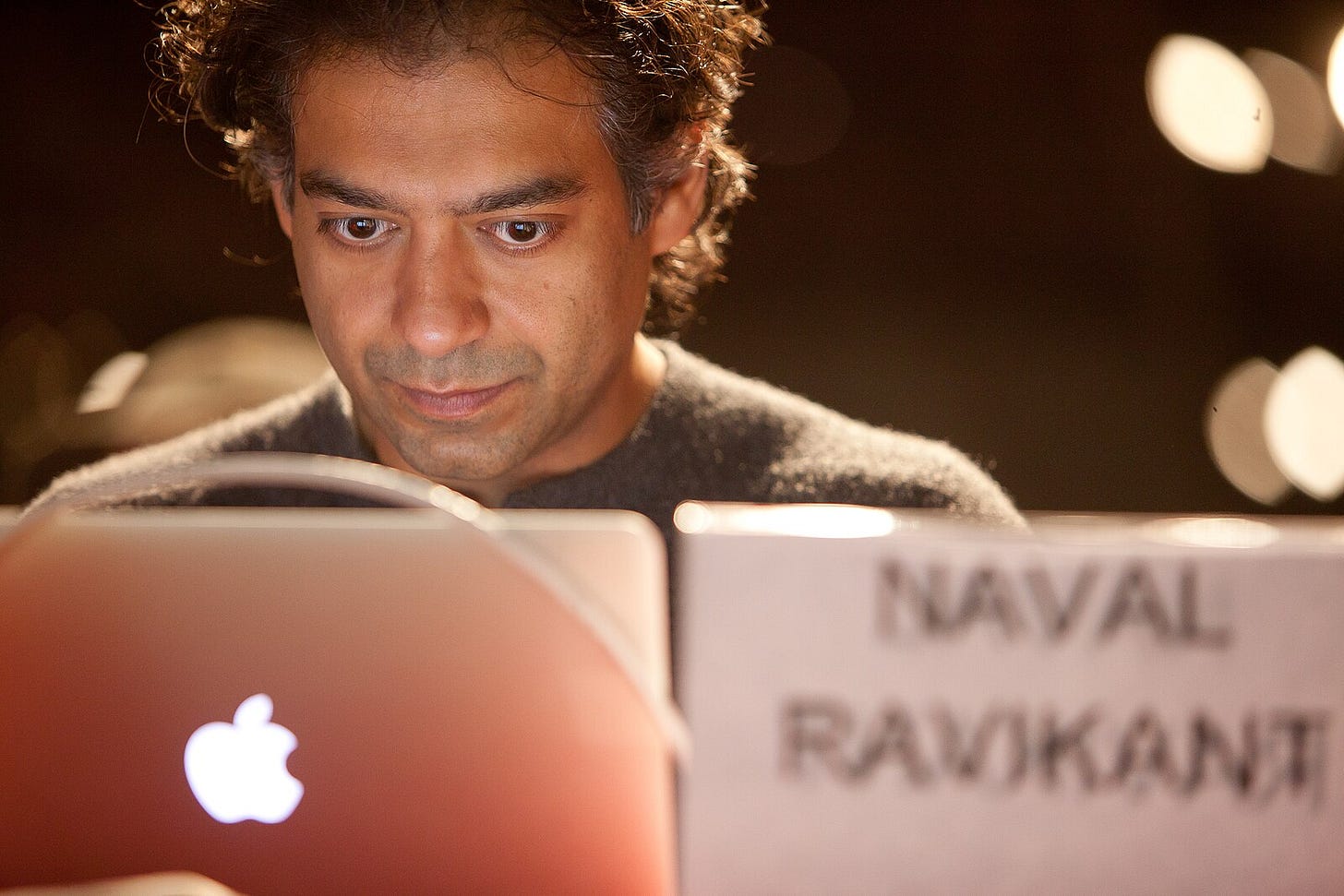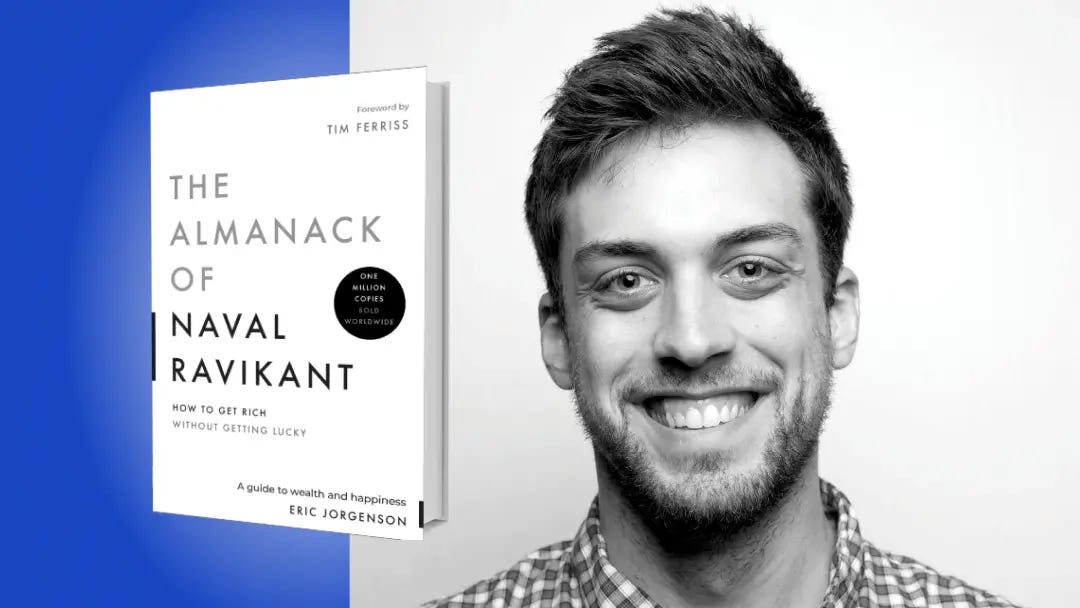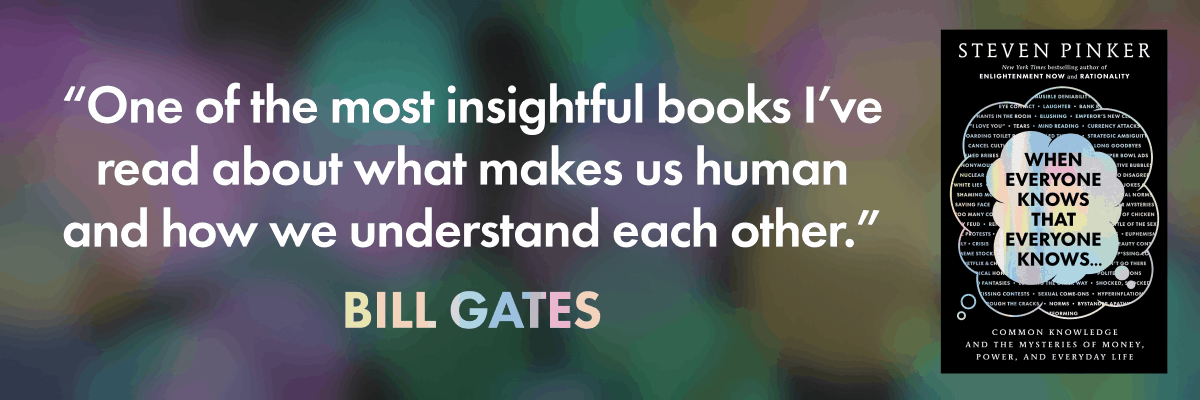5 Timeless Lessons for Building Riches and Joy—According to Naval Ravikant
Silicon Valley’s philosopher-investor shares his thoughts on wealth, leverage, and living a meaningful life.
Listen now on Apple Podcasts or Spotify:
You may or may not know the name Naval Ravikant, but in Silicon Valley he’s revered as both a sharp investor and a philosopher of modern life. Eric Jorgenson’s 2020 bestseller The Almanack of Naval Ravikant distills Naval’s wisdom on how to build wealth and happiness without depending on luck, and he’s just released a new hardcover edition of the book with an introduction by Tim Ferriss, as well as an audiobook featuring new conversations with Naval. Below, Eric offers up five of Naval’s big ideas.
1. How to get rich without getting lucky.
Naval shows that wealth isn’t about luck or working harder. Wealth is a skill that you can learn and improve at. Val’s own story is proof. He grew up in a low-income, single-parent home. As a young kid, he immigrated with his family from India to New York. They were struggling to make ends meet, and Val would spend afternoons in the library reading or doing odd jobs. Eventually, he fought his way to Silicon Valley, where he became a successful founder and investor over decades of hard work.
Naval insists that if he lost everything today, he could rebuild his personal wealth within a decade because of his experiential knowledge about the principles of wealth creation. Naval says that the key levers are specific knowledge, accountability, leverage, and long-term thinking. It’s not about trading your time for money or getting a raise, but about building assets like businesses, investments, and intellectual property—ways to generate income even while you’re asleep.
Ask yourself about a unique piece of knowledge or skill that you have (something authentic to your personality, maybe), and look for ways that you can develop that into something scalable. Wealth is not about hard work, but about knowing what to work on and who to work with. You want to work on creating value at scale by productizing yourself.
2. Escape the time-for-money trap with leverage.
Most of us are taught that the way to get ahead is to work more hours or climb the corporate ladder. Naval shows us that getting ahead is actually about leverage. We live in the Age of Leverage, and there are three main types:
Labor: People working for you.
Capital: Money working for you.
Low-margin, permissionless: Code and media that anybody can use at any time.
The third type of leverage is new and powerful. Think about building an app, creating a YouTube video, or writing a book that can reach millions of people without needing anybody’s permission. Once it is created, it can retain value without needing additional effort. Think about software developers: once they write code, that program can run endlessly, creating value for millions of people without additional effort, at zero marginal costs.
The focus should be on working smarter, not harder. Figure out ways to amplify your efforts. Ask yourself how you can use technology, media, or capital to scale the knowledge that you have and increase your impact. Val is an investor who built multiple companies (most famously AngelList), and his life shows how leverage can turn small bets into massive outcomes.
This week, Book of the Day is brought to you by two-time Pulitzer Prize finalist and Harvard Professor of Psychology Steven Pinker. In his newest book When Everyone Knows That Everyone Knows…, Steven invites us to understand the ways we try to get into each other’s heads and the harmonies, hypocrisies, and outrages that result. Pick up your copy today.
3. Play long-term games with long-term people.
Naval knows that compounding isn’t just for money. Compounding also applies to relationships, reputation, and knowledge. He urges us to play long-term games with long-term people, because trust, shared history, and knowledge all multiply over time, opening doors to unexpected opportunities.
He tells the story of his partnership with a fellow investor, Elad Gil. Their mutual trust and generosity have led to seamless, fruitful collaboration over decades of investing together. They go above and beyond to take care of each other, and over the years, this has led to numerous deals and millions of dollars in shared success.
“One must be impatient with actions, patient with results.”
Naval also points out that most of our efforts—whether in education or work or relationships—won’t yield immediate results. But if you invest deeply in the right areas after a thoughtful search and with the right people, the returns can be exponential over time. One must be impatient with actions, patient with results.
So, how do you find your long-term people? Val’s advice is to seek out those who value trust, play positive-sum games, and are authentic to themselves. That’s how you know they’re going to stay in the game, take good care of you, and behave well.
4. Happiness is a learnable skill, too.
Happiness is a skill you can build. At one time, Naval dismissed happiness as trivial, but after he achieved wild material success and some fame but not happiness, he decided to dig deeper. He learned how to be happy and now shares the practical strategies he discovered.
Timeless approaches he names for improving your baseline level of happiness include habits that stabilize your mood, such as exercise, meditation, and surrounding yourself with positive people. You want to be mindful of habits that erode happiness, like social media, constant comparison, envy, and drugs. A key idea he shares is that desire is a contract you make with yourself that binds you to being unhappy until you get what you want. It’s easy to be consumed by desires. Creating new desires is almost automatic in humans. To be happier daily, ensure that your desires are few and carefully chosen.
Happiness, for Naval, is about mastering your mind and learning to choose your emotional state. You control your interpretation of everything that’s happening to you. Never be a slave to external circumstances, meaning avoid moving through life reactively. We can all grow slightly more enlightened every day as we work on this.
5. Authenticity is the ultimate advantage.
We don’t want to endlessly compete with a bunch of people who are just like us. We want to escape competition through our authenticity. You want to be the truest version of yourself. So, how do you know what’s authentic to you?
“Are you living someone else’s script, or are you being authentic to yourself?”
Well, ask yourself what you were doing as a kid? What do you do even if you don’t get paid to do it? What are you naturally drawn toward? If you’re stuck, ask the people around you. Ask your parents. Ask your siblings. Ask your long-time friends. They may know you better than you know yourself.
Naval also emphasizes mastery of your environment and yourself, learning to manage your habits, health, and self-talk. He believes that health comes first. This should be obvious, but most of us don’t live according to this principle. Your top priority, every day, before even taking care of your family, should be taking care of your physical health because everything is downstream of that.
Are you living someone else’s script, or are you being authentic to yourself? Are you walking your own path? The path to a meaningful and successful life starts with being completely yourself.




